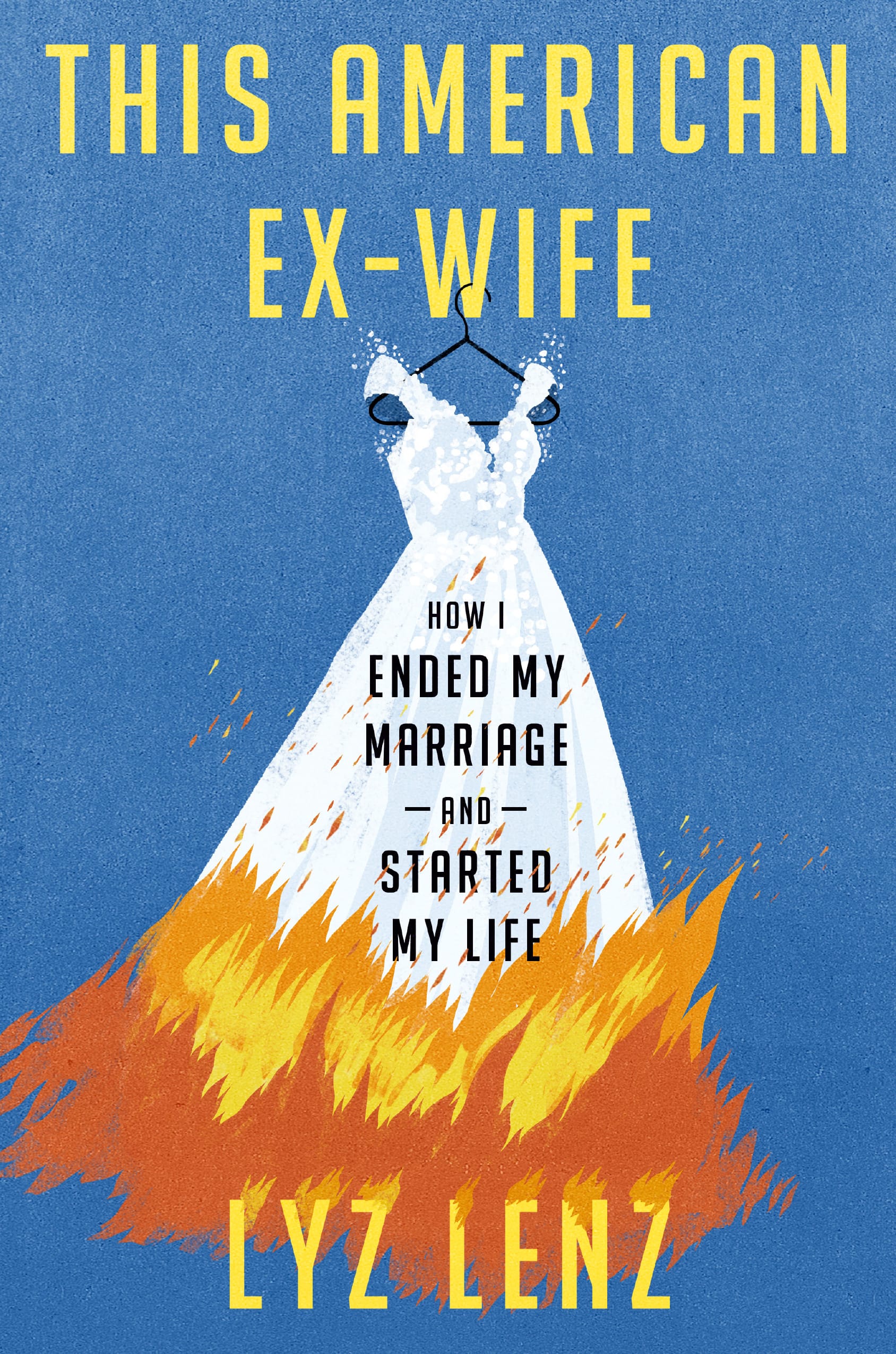Can Divorce Save You? This Author Says Yes—and She’s Rewriting the Narrative on Ending a Marriage
My marriage ended on a Monday.
I walked into my house at one a.m., having just completed a sixteen-hour round research trip to Indiana in twenty-four hours. I was trying to write my first book while raising a four-year-old and a two-year-old, with little childcare, and the care I did have was cobbled together Rube Goldberg–style from friends and a part-time day care program at a church. I opened the back door and stepped over the usual pile of shoes and coats into the kitchen. I flipped on the light and saw a trash bag on the floor, spilling the detritus of my life: Go-GURT wrappers, tissues, plastic plates, Goldfish crackers, damp napkins, orange peels, dried chunks of cheese, and a broken toy from a fast-food chain.
This had happened so many times before. My husband emptied the trash and set the full bag on the bench in the breakfast nook. He’d take it out in the morning, he’d tell himself. Much like the myth of leaving the dishes to soak so he could wash them the next day. Perhaps the greatest trick a husband has ever played was convincing himself (and his wife) that he’d get to a chore the next day.
I imagined the bag sitting there as he watched Star Trek, slowly wobbling on the edge of the bench, until, with a wet slap, it hit the floor. Maybe he never heard it. He’d never really had to pay attention like that—to the left-behind crumbs, the sticky spots on the floor. But to me, an older daughter of eight children and now a mother, those small messes were the only things I saw.
I had spent the eleven years of our marriage trying to get him to see that the dishwasher drain didn’t clean itself and the socks didn’t crawl out of the laundry and find their own mates and put themselves in his drawer. I wanted him to notice. I wanted him to see these small labors.
Sometimes I calmly requested Please just take the trash outside. Other times, I refused to clean it up. Sometimes I raged. Often, he would be irritated and say he forgot and put off the chore again. Once, in the first year of our marriage, I’d let the bag sit for an entire week before the smell of rot-ting garbage filled the kitchen. I was the first one who blinked in that game of chicken, hauling it out and then cleaning up the wet mark the bag had left on the wooden bench. The stain remains there.
Once, in a fight, my husband said that each chore was simply a chore and just that. He was criticizing my propensity to talk not just about the one trash bag on the floor but all the trash bags that had ever fallen. These were minor things, he argued. Just trash. Not such a big deal. It’s easy to see chores as a one-off when they are not the bulk of your life. When your work and leisure aren’t woven among the laundry, the dishes, the vacuuming, and the grocery shopping. When you aren’t wondering whether there is enough dish soap or if you have enough potatoes for dinner. Standing there in the kitchen that early Monday morning, I was exhausted. Marriage, it seemed, was this: the eternal return of trash on my floor.
Nietzsche’s idea of eternal return argues that all events in time and space occur over and over and will continue to occur infinitely—as in marriage. People grow and change, yes. But not that much. In marriage, you have the same arguments over and over. As long as you both shall live. My husband was right. I could never just see a pile of trash. I saw all the past piles, and on that morning I saw all the future piles, too. I saw an eternity of trash piles. This is my life. This will always be my life. The moment I’d said “I do,” I’d entered a time continuum, where trash on the floor would always happen. And I would always be cleaning it up. And nothing I could do, no amount of couples therapy or list making, could stop the inevitable tumble and wet splat.
Looking at the mess, I began to do the mental math—what did I have the energy for? Wiping the floor or fighting? Add those factors together, solve for trash on the floor. That morning, the solution was to pick it up.
Later, I went to bed and dreamed I was drowning. I woke up three hours later, at five a.m., to my two-year-old son patting my cheeks. My son vehemently believed five a.m. was the appropriate time to wake up. Most mornings I would sit with him watching Curious George, drinking coffee, and reading the news on my phone, while he snuggled into the corner of the couch with his little blankie rubbing against his cheeks.
That morning, my body vibrated with exhaustion, but I didn’t have time for coffee and Curious George. The house cleaner (a lovely woman from my church who’d offered to help me when she’d asked me how I was doing, and I broke out into sobs) was coming that day, and I had to clean up all the mess that had accumulated while I was gone.
The truth about accepting help is that it requires asking for it and coordinating it and paying for it, emotionally and financially. Financially, I took on extra freelance work to pay for housecleaning because it wasn’t in the budget. Emotionally, I dealt with my husband’s heavy sighs when he’d walk into a professionally cleaned home, and his angry silences that would fill the space between us until I’d explained I’d sold a little article to pay for it. It didn’t come out of the shared checking account. Sometimes my husband would say, “If you want help just ask,” and I would wave my arms around me like someone drowning. “Just look!” I’d say. “This is all a cry for help.” But truthfully, I didn’t want help. I was grateful for it, sure. What I wanted was an equal partner…
I was the one who broke. I want to make that clear. If I hadn’t, we might still be together. This book wouldn’t exist. Much of my work wouldn’t exist. But my marriage would. And maybe we’d reach the end of our lives and have happy, peaceful moments. And our children might idolize what we had, not knowing, never knowing, how much it cost me. In the 1996 remake of the movie 101 Dalmatians, Cruella de Vil tells Anita Darling, “More good women have been lost to marriage than to war, famine, disease, and disaster. You have talent, darling. Don’t squander it.” It’s true. Women are taught that it is noble to lose themselves inside their marriage. To give up everything for home and children, even themselves. I often wonder how many stories, how many scientific breakthroughs, how many plays, musical scores, and innovations, have been tossed onto the pyre of human marriage.
If before I had felt like I was trying to stop my life from teetering off the edge, this was the moment I surrendered to it. I felt like I was falling, and so I fell. Whatever brokenness waited for me, I suddenly wanted. Because this wholeness, this version of home, marriage, and family, would ruin me.
“I quit,” I said out loud, and only the house heard me...
I soon realized I wasn’t alone. My story wasn’t compelling or unique; I was simply one of hundreds of thousands of women who saw their lives falling apart from the common-place pressures of society and patriarchy. It wasn’t violent abuse. It wasn’t another woman. It was trash on the floor, sticky counters, and please please please clean the bathroom, over and over, until I couldn’t do it anymore. And maybe I could have. Maybe I could have just given up and been miserable for a few years until our children were older. But I didn’t want to. I didn’t want to waste my one wild and precious life telling a grown man where to find the ketchup in the fridge. What was compelling about my marriage wasn’t its evils or its villains, but its commonplace horror.
Excerpted from the book THIS AMERICAN EX-WIFE by Lyz Lenz. Copyright © 2024 by E Claire Enterprises LLC. Published in the United States by Crown, an imprint of Crown Publishing Group, a division of Penguin Random House LLC. All rights reserved.

Lyz Lenz is a journalist and the author of God Land and Belabored. She has written for Insider, The New York Times, Marie Claire, and The Washington Post. Lenz also writes the newsletter Men Yell at Me, about the intersection of politics and personhood in red-state America. She lives in Iowa with her two children.
Earlier this week, Lyz appeared on TODAY with Maria Shriver. Watch below!




